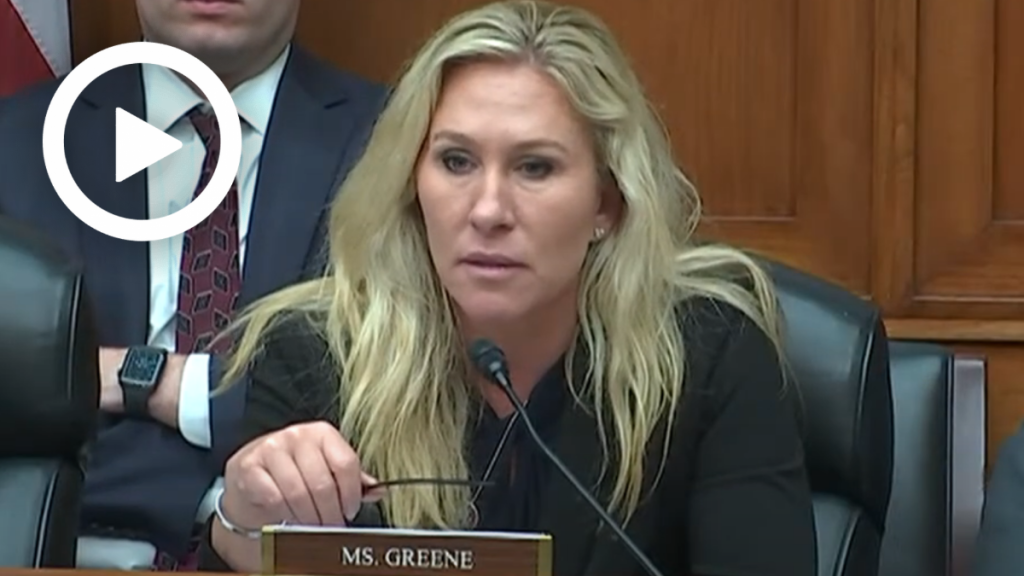Hearing Wrap Up: Existing Flaws, Structural Weaknesses, and Unprecedented Levels of Spending Led to Rampant Fraud in Pandemic Relief Programs
WASHINGTON — The Subcommittee on Government Operations and the Federal Workforce held a hearing yesterday titled, “Waste, Fraud, and Abuse Go Viral: Inspectors General on Curing the Disease.” Subcommittee members discussed with Inspectors General from the Department of Labor, Department of Treasury, and the Small Business Administration how rampant waste, fraud, and abuse was able to occur in federal pandemic relief programs. Subcommittee members asked ways in which federal programs could have been better safeguarded to combat criminal activity and what agencies are doing to recover stolen funds and ensure federal programs are better protected for crises in the future.
Key Takeaways:
Federal agencies were unprepared to implement massive pandemic relief programs, which opened the door to waste, fraud, and abuse.
- Richard Delmar—Acting Inspector General for the U.S. Department of the Treasury—spoke on the challenges that arose when huge sums of federal funds were moved to combat the pandemic: “Emergencies such as COVID-19 heighten oversight challenges as agencies work to stand up programs and distribute large-scale funding quickly. Agencies should not solely rely on self-certification by entities without other validation controls, failure by agencies and grantees to implement or effectively modify critical internal controls created risks for pandemic programs, and failure to stand up timely reporting capabilities created program monitoring challenges and increased program risk.”
- Larry D. Turner— Inspector General for the U.S. Department of Labor—outlined how enormous cash infusions from the federal government into federal programs with existing oversight flaws allowed rampant fraud to take place: “The unprecedented infusion of federal funds gave fraudsters a high value target to exploit. That combined with ease of identity theft and system weaknesses, previously identified by the OIG, allowed criminals to defraud the programs. Department of Labor recently reported an annual improper payment rate of 21.52 percent for FY ’22. When applied to the approximate 888 billion dollars in UI benefits paid during the pandemic, at least 191 billion dollars could have been paid improperly.”
Agencies’ failure to utilize tools to prevent misuse of taxpayer dollars resulted in billions of dollars lost due to improper payments.
- Sheldon Shoemaker— Deputy Inspector General for the U.S. Small Business Administration—discussed how efforts to expediently process unseen levels of claims added fuel to the fire for fraud to transpire: “Small Business Administration’s first round of PPP loans resulted in 14 years-worth of lending in 14 days. As the program swelled to more than one trillion dollars, so did the risk to taxpayers. A simple system control that disallowed payments over one thousand dollars for each employee or validation with tax identification records, could have prevented these improper payments. We also found in PPP, the Department of Treasury’s do-not-pay list was not included within the initial internal control environment, allowing billions of dollars of likely improper payments.”
Member Highlights:
Subcommittee Chairman Sessions (R-Texas) discussed what actions are underway to recover taxpayer dollars from fraudsters and criminals who stole from federal pandemic spending programs.
Subcommittee Chairman Sessions: “You referred to money that as a result of the investigation was found and brought back, what happened to that money?”
IG Shoemaker: “This money is coming back to SBA in multiple different vectors and the timeliness of actually landing into Treasury is an issue. We actually have an ongoing review to trace that money, the audit, to ensure exactly where that money is coming back into the SBA programs that it can be made available for other uses.”
Subcommittee Chairman Sessions: “We will be following back up on that.”
Rep. Byron Donalds (R-Fla.) noted how guardrails that could have prevented or mitigated improper payments went unused in doling out pandemic relief funds due to the structure of government programs.
Rep. Donalds: “Do you want to expand upon your thoughts why SBA was not using Treasury’s do-not-pay list?”
IG Shoemaker: “These programs were calibrated for speed. I believe they calibrated the control environment to not include that just for the sake of speed and we see the results of that. What occurs is you have that lack of assurance that only eligible recipients are receiving those funds.”
Rep. Lauren Boebert (R-Colo.) spoke on what is being done in regards criminal referrals in order to hold bad actors accountable for stealing U.S. taxpayer dollars.
Rep. Boebert: “Have any criminal referrals been issued for the waste, fraud, and abuse? In total?”
IG Turner: “Yes, we’ve had 1,200 indictments and 600 convictions.”
IG Shoemaker: “Our investigative work so far has resulted in 793 indictments, 635 arrests and 446 convictions and 500 cases ongoing at present. The wrongdoers are getting significant sentences.”
IG Delmar: “I can get that for you. We’ve worked with DOJ and state agencies. We also pursue civil remedies to recover the funds.”
Rep. Gary Palmer (R-Ala.) outlined the astronomic levels of total fraud that occurred in federal pandemic relief programs.
Rep. Palmer: “Would you repeat the amount of fraud that we think cumulatively has occurred?”
IG Turner: “We calculated fraud to be 76 billion, and that’s on the conservative side.”
IG Shoemaker: “Our work has demonstrated approximately 100 billion in potential fraud.”
Rep. Marjorie Taylor Greene (R-Ga.) discussed the fraudulent use of Social Security Numbers, highlighting the need for federal agencies, like the Social Security Administration, to make information available for anti-fraud efforts.
Rep. Greene: “The Pandemic Response Accountability Committee found 69,323 questionable Social Security Numbers allegedly used to obtain $5.4 billion in COVID-relief…”
Mr. Shoemaker: “That report indicates that a very powerful resource, which is the Social Security Administration, that data is not readily available to the Office of Inspector General…if the data is available, we can unlock the power of that data.”




